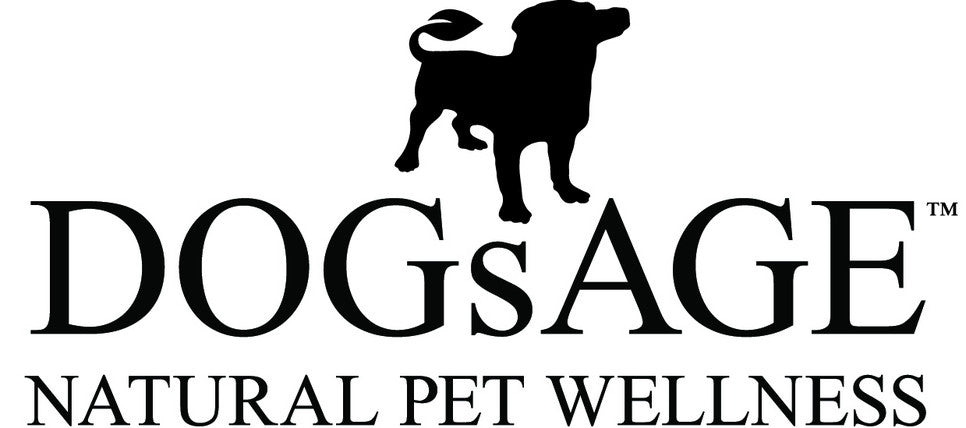Does Your Senior Dog Have Canine Cognitive Dysfunction Syndrome? May 4, 2017 11:05

Have you noticed behavioral changes in your dog as they’ve aged? I know I did. When my dog got older, I noticed a rapid shift. Sadie became afraid of family members, forgot her routine and exhibited ALL of the symptoms I list below.
As a dog ages, their brain function declines. Dogs’ brains undergo oxidative damage, neuronal loss, atrophy and can develop beta-amyloid plaques (the same as in humans) as time goes on. Eventually, when a dog’s brain ages enough, they can develop what is called Canine Cognitive Dysfunction (CCD) or doggie Alzheimer’s. CCD is a degenerative, neurological disorder that includes a variety of symptoms such as memory loss, disorientation, confusion, behavior and personality changes.
Not all dogs develop CCD. However, CCD affects between 40-50% of dogs, with most pets presenting at least one symptom around age 10*. So how can you tell if your dog might have it?
Does My Senior Dog Have CCD?
It can be difficult to tell if your pet’s new behavior is a normal sign of aging or a sign of doggy dementia (unless it occurs rapidly like in my Sadie). However, there are some telltale signs of CCD.
Some of the most common symptoms of CCD are:
- Your pet is startled by lights, sounds or familiar objects
- Your pet waits at the wrong side of the door for it to open (hinge side)
- Your pet becomes trapped behind furniture or in room corners
- Your pet paces in circles or wanders aimlessly through the house
- Your pet frequently has potty accidents in the house, regardless of frequent bathroom breaks
- Your pet sleeps more during the day and less during the night
- Your pet stares into space and seeks less interaction
- Your pet does not recognize you or other family members
If you see any of these signs – and especially if you see two or more – the first thing you should do is visit your veterinarian. They will ask you details about your pet’s behavior. They may run tests to rule out any other conditions that may be causing the symptoms. If they think your dog does have CCD, they can try to determine what stage your dog might be in.
Unfortunately, CCD can’t be cured. Thankfully though, it can be managed.
Most vets prescribe medications to manage CCD. There are various medications that may help your dog’s condition but some are expensive and it may take experimenting for a while to find the right one. After almost a year on medication that didn’t work well, and observing some negative side effects, I chose to go a more natural route with Sadie.
How Can I Managing My Dog’s Alzheimer’s Naturally?
There are some things you can do to help slow the progression and keep your dog’s brain sharp. Please remember though that each dog will progress differently and not all dogs will be helped by every method of management. The key is to do your research and try different things to find what works for your dog.
That being said, here are some things I know can help a lot of dogs.
- Pet-Tek Heart Health & Cognitive Function – This supplement contains amino acids and vitamins that can reduce fatigue, help improve memory, slow the progress of Alzheimer's… and so much more!
- Omega 3 Fish Oil The components of fish oil can have a positive effect on several areas of brain function including mood and memory. It can also help to reduce inflammation, which will help senior dogs with mobility and joint discomfort. (note: My vet recommended doubling the dose of fish oil to help improve brain function for CCD)
- Tru-Pine Antioxidant - Antioxidants have been proven to help slow down aging and improve cell renewal.
- Peppermint essential oil - An aromatherapist told me that this oil can help oxygenate the brain. She told me to put a couple of drops in my hand, rub my hands together to warm the oil and place them near (but not too close) to Sadie’s nose so she could breathe it in.
- Improve their diet - Feeding your pet a natural, high-quality food can help the whole body function better. Some research suggests that feeding a diet high in Vitamin E and natural antioxidants may help delay or limit the progression of cognitive decline. One simple way to improve your pet’s diet is to upgrade to a premium kibble that is free of corn, wheat, soy, inferior proteins and chemical additives. If you’re already doing that, or you want to jump straight to the best stuff, you can move to a balanced home-cooked meal or raw food (ready-made or home prepared).
- Reduce stress - Provide your pet with a predictable environment. Keep things structured, stick to a routine when possible and try to avoid major changes in your pet’s life. Keep familiar objects in each room, as well as items your pet uses regularly, to reinforce familiarity with their surroundings.
I know watching your pet’s behavior change, and their mental alertness decline, can be frustrating. Especially when they forget who you are after years of a strong bond. Please be patient and compassionate though. Your senior dog is not “being a jerk” or doing these things to spite you. These changes aren’t something they are conscious of or can help. They’ve given you many years of loyal and loving companionship. The least you can do is help them age kindly and gracefully.
* (Source)
